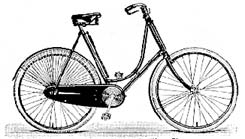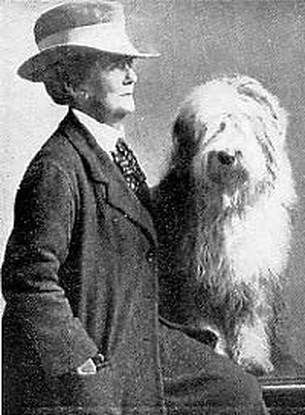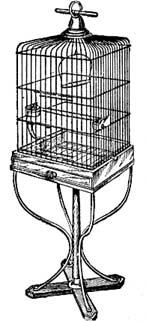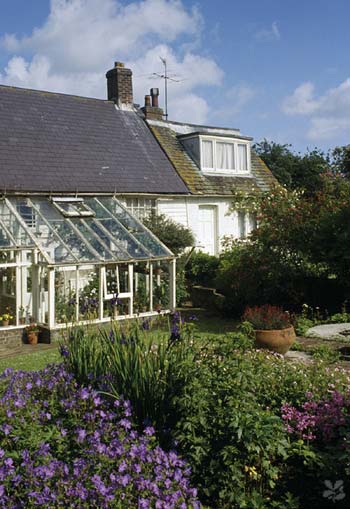What's the link between parrot cages, bicycles, and toothbrushes? David Bridgeman-Sutton recounts a curious incident with Dame Ethel Smyth
Fashion Notes
|
Virginia and Leonard Woolf glanced anxiously at the sky; rain threatened and the composer Ethel Smyth was coming to dinner. As was her custom, she intended covering the 20 miles from her home to Monk’s House by bicycle and returning by the same means afterwards. Major Plank, the other guest, lived nearby and would come to no harm, but Dame Ethel was at an age when a prolonged soaking is inadvisable.
Thoughts of the weather didn’t trouble the doughty Dame as she pedalled forth. Mixed with pleasurable anticipation of an evening among friends were memories of past triumphs. She recalled her career as a conductor, thought of her several operas, of her orchestral and chamber music and of her reputation as a rousing public speaker. Especially, she remembered her days as a suffragette – days that had landed her in London’s Holloway prison. There, her best-known exploit had been conducting her fellow prisoners in a song of her own composition as they exercised in the yard. The words had been feminist in sentiment and a toothbrush was her baton. |
These pleasing reflections were given an unpleasant jolt by the sudden realisation that she was not wearing corsets: ladies in her circle did not attend even informal dinner parties in such a state of undress. Fortunately, she came soon after to a village where she found one of those shops that sell everything.
Everything, that is, except corsets. The shopkeeper, fearing a lost sale and a lost customer, engaged in a great deal of hand-wringing. This ceased abruptly when the tweedy lady purchased a few hand tools and a large parrot’s cage. To make the day even brighter, the tweedy one announced that she had no use for the substantial and ornate base and that the shopkeeper might accept it as a gift.
Everything, that is, except corsets. The shopkeeper, fearing a lost sale and a lost customer, engaged in a great deal of hand-wringing. This ceased abruptly when the tweedy lady purchased a few hand tools and a large parrot’s cage. To make the day even brighter, the tweedy one announced that she had no use for the substantial and ornate base and that the shopkeeper might accept it as a gift.
|
Twilight found the Woolfs and Major Plank anxiously sipping pre-dinner drinks as they wondered what had delayed the normally punctual Dame. Their unease was heightened by a curious rustling sound coming from the direction of the shrubbery. This, the Major said, was very similar to that made by a wounded and therefore angry lion when lying in wait for prey. What if such an animal had escaped from a circus or zoo and were to savage the unsuspecting and belated composer?
|
|
If anyone had a large-bore shotgun, the Major volunteered, he would be only too happy to discharge both barrels in the direction of the noise. Mercifully, as it turned out, no one had.
The rest of the story was told by the poet Stephen Spender in his 1951 memoir World Within World. “… Virginia went into her garden to discover Dame Ethel in a state of undress in the shrubbery struggling with the bird cage, which she was wrenching into the shape of corsets and forcing under her skirt.” These rich characters have all gone, their works remain. Ethel Smyth’s works include organ pieces: five chorale preludes and a Prelude on a Traditional Irish Air. Monk’ s House is little changed. |
David Bridgeman-Sutton,
May 13, 2005
May 13, 2005







